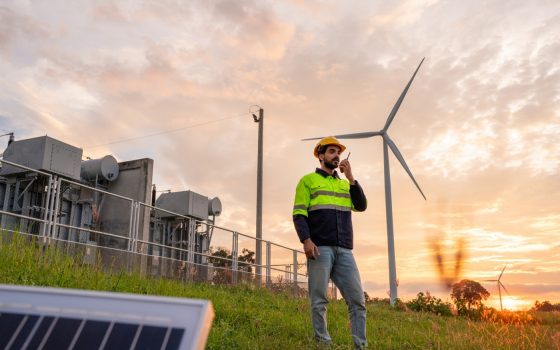Why carbon taxes should be spent on insulating the nation’s draughty homes
The UK is raising more money from carbon taxes than it is spending on tackling emissions – these funds should go towards insulating our draughty homes.
17 January 2023
As temperatures last week plummeted and snow disrupted travel across the UK, millions of families could not afford to heat their homes. It was estimated that a fifth of low-income households were going without food and heating, at a time when icy temperatures were sweeping down from the Arctic.
Our chancellor might have frozen the energy price cap, but people living in the UK are still freezing in their homes. The soaring cost of gas has made a warm home this winter a distant dream for many. Despite committing small amounts of money to home insulation schemes, our government hasn’t really bothered to fix the root cause of our sky-rocketing energy bills — our leaky homes and their reliance on gas heating.
It was our addiction to fossil fuels that got us into this position. In 2012, we were insulating more homes a year than ever before. If insulation rates had kept up with this peak, every home in the UK would now be at a decent energy efficiency level, saving households £530 a year on average, and cutting the UK’s annual greenhouse gas emissions by the equivalent carbon footprint of Leeds, Bristol and Bradford combined.
It’s in all of our interests that we kick this addiction to fossil gas, both to make a warm home affordable for everyone, and to put the brakes on climate breakdown. But from insulating our homes to building massive windfarms to retraining high-carbon workers in the industries of the future, getting off fossil fuels is going to take serious investment. As will repairing the damage caused by the climate disasters it’s too late to stop — things like fires and floods — both at home and abroad.
The options available to this government for raising money are plentiful. Despite the fuss in the media, government borrowing remains an affordable option, and the Bank of England could provide cheap finance. Alternatively we could simply raise taxes on the wealthiest people in our society, who have been doing very, very well out of this period of permacrisis. Every lever should be pulled to prevent climate breakdown from damaging communities in the UK and worldwide. Perhaps the easiest option of them all is to raise funds from the polluting businesses themselves through carbon taxes.
We’ve already got a mechanism for taxing carbon, called the UK emissions trading scheme. It taxes some of the most polluting sectors of our economy — things like aviation and manufacturing — by requiring them to buy permits for each tonne of carbon dioxide they emit. Over the past two years the price that businesses are charged per tonne has trebled, and the amount the government expects to raise from the tax has more than quadrupled.
But new analysis has found something shocking: the UK government is spending a billion pounds less on cutting domestic emissions than it is raising through this carbon tax. The government is expected to raise £6.5bn through the emissions trading scheme this year, but they’ve only allocated £5.5bn to cutting emissions — and this includes money from other sources like borrowing and other taxes. The tax on emissions is expected to raise over £5bn every year until 2030 — that’s enough to install insulation and other energy efficiency measures in 3m extra homes a year under the government’s current Energy Company Obligation scheme.
Other countries are much better at spending the money raised from taxing polluters on climate action. Germany, Portugal, France and Greece are all using between 90 and 100% of equivalent EU emissions trading scheme revenues to cut harmful carbon emissions, and recent EU legislative changes will fix this at 100% for all EU nations. This money goes directly from taxing emissions to fighting the climate crisis. On top of this tax revenue, these governments are investing even more money in fighting the climate crisis from other sources, like borrowing or other taxes. The UK has only reinvested 20% of its additional trading scheme revenues into climate action this year, with this forecast to rise to just 69% by 2024/25.
There are billions of pounds coming into the public purse which we can use to protect people against both the heatwaves and cold snaps we’ve seen this year. At home, this means upgrading the UK’s draughty homes so they cost less money and rely on less gas to keep warm, starting with an emergency basic insulation programme this winter. Abroad, this means giving generously to the United Nations’ newly created “loss and damage” fund designed to help poorer nations cope with the climate disasters already unfolding.
Across political parties, politicians have been talking up myths about needing to reign in government spending. But we’ve been here before. A decade of austerity left the UK on shaky foundations when it was hit by Covid-19 and high inflation. . Let’s not repeat the mistakes of the past. When it comes to investing positively in the things that matter, the money is there, so let’s put it to good use.
This piece was originally published on BusinessGreen.
Image: iStock/Bilanol
Topics Climate change






